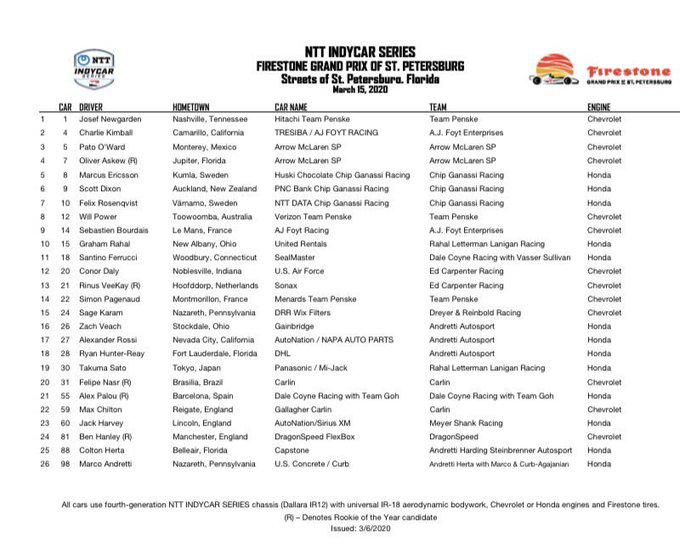Increased Pressure On Legislators: Car Dealers Against EV Mandates

Table of Contents
Financial Concerns Fueling Dealer Opposition to EV Mandates
The transition to an electric vehicle-centric market presents significant financial hurdles for car dealerships, fueling their opposition to EV mandates. The high upfront investment required to adapt to EV sales is a major concern. Dealers face substantial costs across several areas:
- Increased inventory costs for EV models: EVs often have higher purchase prices than comparable gasoline-powered vehicles, impacting inventory costs and tying up dealership capital.
- Need for specialized EV technicians and training programs: Servicing EVs requires specialized knowledge and tools, necessitating costly training programs for existing technicians and potentially hiring new specialized staff.
- Investment in charging infrastructure at dealerships: Dealerships must invest in installing and maintaining charging stations to meet customer demand, adding a significant capital expenditure.
- Uncertainty surrounding consumer demand for EVs in certain markets: The demand for EVs varies significantly across geographical regions. Dealers in areas with lower EV adoption rates face greater financial risk by investing heavily in EV infrastructure and inventory.
This substantial financial burden threatens the profitability and even the viability of smaller, independent dealerships, who may lack the resources to make the necessary investments. The argument is that EV mandates disproportionately impact these smaller businesses, potentially leading to consolidation within the industry.
Logistical Challenges and Infrastructure Gaps Hampering EV Adoption (according to dealers)
Beyond financial concerns, car dealers highlight significant logistical challenges and infrastructural gaps hindering EV adoption, further fueling their opposition to EV mandates. These challenges include:
- Limited public charging stations, particularly in rural areas: The lack of widespread charging infrastructure, especially outside major urban centers, creates "range anxiety" for potential EV buyers.
- Concerns about charging time and range anxiety: Compared to gasoline vehicles, EVs typically require significantly longer refueling times, creating inconvenience for consumers. Range anxiety – the fear of running out of charge before reaching a charging station – is another major concern.
- Inconsistencies in charging standards and networks: The lack of standardization across charging networks adds complexity and confusion for both consumers and dealerships.
These infrastructural issues create significant obstacles to selling and servicing EVs. Dealers argue that legislators are pushing EV mandates before the necessary infrastructure is in place to support widespread EV adoption. This creates a situation where the mandate is ahead of the practical reality of charging availability and consumer readiness.
The Impact of EV Mandates on Consumer Choice
Dealers also express concern that EV mandates limit consumer choice. They argue that:
- Reduction in the availability of gasoline-powered vehicles: Strict EV mandates could lead to a significant reduction in the availability of gasoline-powered vehicles, limiting consumer options.
- Potential price increases due to decreased competition: A shift towards EVs could reduce competition and potentially lead to higher prices for both gasoline and electric vehicles.
- Concerns about the suitability of EVs for all consumer needs and lifestyles: EVs may not be suitable for all consumers, particularly those with long commutes, limited access to charging infrastructure, or specific towing or hauling needs.
The core argument here is that consumers should have the freedom to choose the vehicle that best meets their individual needs and circumstances, regardless of government mandates.
Lobbying Efforts and Political Pressure
Facing the potential for significant economic disruption, car dealer associations are employing various strategies to influence legislators and oppose EV mandates:
- Direct lobbying of state and federal lawmakers: Dealerships are actively engaging in direct lobbying efforts to influence policy decisions at both state and federal levels.
- Public awareness campaigns to highlight dealer concerns: They are launching public awareness campaigns to educate consumers and policymakers about the challenges of rapid EV adoption.
- Collaboration with other industry groups opposed to stringent EV regulations: Dealers are collaborating with other industry groups, such as gasoline producers and parts suppliers, to form a united front against stricter regulations.
These lobbying efforts exert considerable political pressure, impacting the legislative process and potentially delaying or altering the implementation of EV mandates. The political implications of this ongoing conflict are significant, with implications for both environmental policy and the future of the automotive industry.
Conclusion
The debate surrounding EV mandates is far from settled. Car dealers' concerns regarding financial burdens, logistical challenges, and consumer choice are significant and deserve careful consideration. While transitioning to electric vehicles is crucial for environmental sustainability, a balanced approach that addresses the concerns of the car dealer industry is essential to ensure a smooth and effective transition. Ignoring the legitimate anxieties of this influential stakeholder group could hinder the successful implementation of EV mandates. Finding a compromise that supports both environmental goals and the economic viability of the car dealership sector is crucial to navigate this complex issue effectively. Further discussion and collaboration are needed to find solutions that address the challenges presented by these EV mandates and pave the way for a sustainable and equitable transition to electric mobility.

Featured Posts
-
 Dominant Display Mc Laughlin Takes Pole At St Petersburg Gp
May 12, 2025
Dominant Display Mc Laughlin Takes Pole At St Petersburg Gp
May 12, 2025 -
 Ukrayina Ta Mirni Peregovori Pozitsiya Dzhonsona Schodo Planu Trampa
May 12, 2025
Ukrayina Ta Mirni Peregovori Pozitsiya Dzhonsona Schodo Planu Trampa
May 12, 2025 -
 Uruguays Offshore Oil Potential A Realistic Look At Black Gold
May 12, 2025
Uruguays Offshore Oil Potential A Realistic Look At Black Gold
May 12, 2025 -
 Campeonato Uruguayo Segunda Division 2025 Calendario Y Formato
May 12, 2025
Campeonato Uruguayo Segunda Division 2025 Calendario Y Formato
May 12, 2025 -
 Bundesliga 2 Heidenheims Win Over Kiel A Pivotal Moment In Relegation Fight
May 12, 2025
Bundesliga 2 Heidenheims Win Over Kiel A Pivotal Moment In Relegation Fight
May 12, 2025
